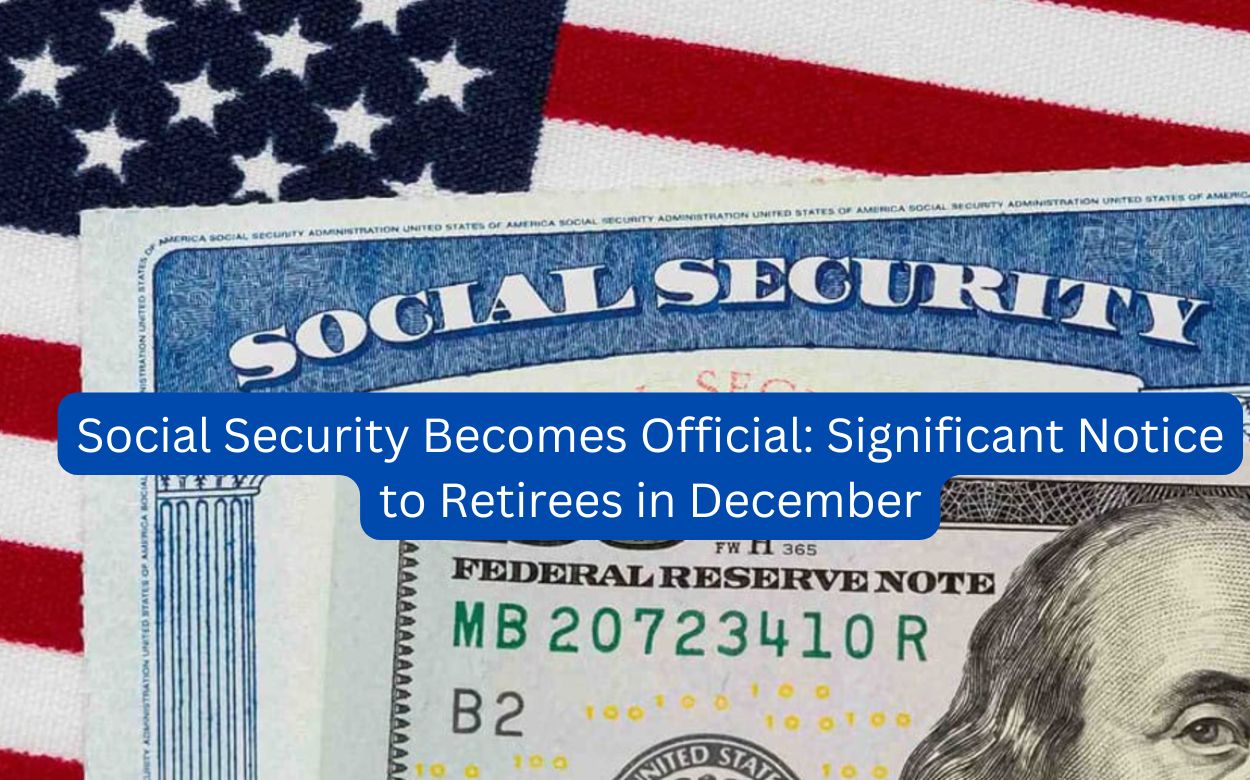Official Social Security Update: December’s Big News Every Retiree Must Know
Every year, Social Security beneficiaries get a cost-of-living adjustment (COLA), which affects their benefits, typically increasing them to keep up with inflation. However, if you are not an enthusiastic news consumer, you may be unaware of the 2.5% increase this year, which is not good.
This is why the Social Security Administration sends beneficiaries an annual letter informing them of any changes to their benefits. This year’s notice will also be available online for recipients with My Social Security accounts. You should receive this notice in the mail in December unless paper notifications are turned off in your My Social Security Account options.

New 2.5% cost-of-living adjustment:
Given the rise, pensioners’ average monthly check, which currently stands at roughly $1,907, will increase by $50. This number may vary based on the size of your check, but it should indicate how things will play out. Compared to past rises, 2.5% appears moderate, especially compared to the 8.7% seen in 2023, but this could be a glimpse of hope for lowering inflation. Joe Elsasser, a certified financial planner and owner of Covisum, a Social Security claiming software company, cautions against being overly hopeful, saying, “Although price increases have moderated, it’s not as if inflation is over.” Inflation and prices may rise again without much warning.
Income changes may lead to Higher Taxes:
Retirees should be aware of changes in income that may result in a higher tax bracket at all times. According to CFP Brian Vosberg, owner of Vosberg Wealth Management in Glendora, California, “What we’ve seen with clients is kind of a surge in other income that has caused more of their Social Security to be taxed.”
It is vital to understand that Social Security income is not taxed on its own; instead, combined income, which includes adjusted gross income, nontaxable interest, and half of Social Security payments, is taxed. If this amount exceeds a specified threshold, it will be taxed. Beneficiaries can request that federal tax withholding be deducted from their benefit payments to avoid surprises. Getting proactive in tax planning is the most excellent approach to prevent overpaying. Vosberg suggests purchasing an annuity that allows the interest to grow tax-deferred or cutting income from other sources, such as IRA withdrawals, to help mitigate the impact.


Comments are closed, but trackbacks and pingbacks are open.